Red Door Blog
The Latest from Red Door

Support for New Moms Navigating Infant Feeding Challenges
Parenthood brings joy and challenges. One of the primary concerns often revolves around infant feeding – a process that can be both rewarding and overwhelming. At Red Door Pediatric Therapy, we understand the intricacies of infant feeding and are dedicated to supporting mothers through this crucial phase. Identifying Feeding Difficulties in Infants It’s important to recognize signs that may indicate feeding difficulties in your baby. These include making clicking sounds during feeding, choking, having unusually long or sleepy feeds, and experiencing poor sleep. Such symptoms can be distressing for both

Speech and Language Development in Autism
Understanding how autism affects speech and language development in children is crucial for parents and caregivers. Children with autism often experience unique challenges in both verbal and nonverbal communication. At Red Door Pediatric Therapy, located in Beulah, Minot, Grand Forks, Bismarck and Fargo, North Dakota, our approach begins with educating

Strategies for Resolving Oral Facial Myofunctional Disorders
Oral facial myofunctional disorders (OMDs) can significantly impact a child’s articulation and swallowing abilities. One common OMD is tongue thrust, where the tongue rests too far forward or to the side, affecting speech and swallowing. In this article, we will explore strategies used at Red Door to help resolve OMDs,

Stuttering in Children: A Guide for Parents
Stuttering is a common speech disorder that many children experience as they develop their language skills. If you’re a parent or caregiver, it’s essential to understand stuttering, its causes, and how to support your child through this speech development phase. This guide will explore stuttering, its potential causes, and when

The Importance of Imitation Skills in Early Childhood
Imitation plays a critical role in early childhood development. It’s a key factor in learning language, social interaction, and understanding the world. As parents, you can actively foster these skills, laying the foundation for your child’s growth. The Significance of Imitation from Birth From the very first day, your child

What Skills Come Before Speaking?
A significant milestone in a child’s development often captures our hearts—their first words. But did you know that there are essential skills that should pave the way for these words to emerge? At Red Door Pediatric Therapy, we believe in nurturing these foundational skills to help children speak and excel

The Therapeutic Magic of Snowman Building for Children: Insights from Therapists
Winter brings a whimsical invitation to engage in outdoor activities, and one age-old tradition stands out among the snow-covered landscapes: building a snowman. Beyond being a fun pastime, the act of creating a snowman offers a multitude of therapeutic benefits for school-aged children. Occupational therapists, physical therapists, and speech therapists recognize the profound advantages embedded within this seemingly simple activity.
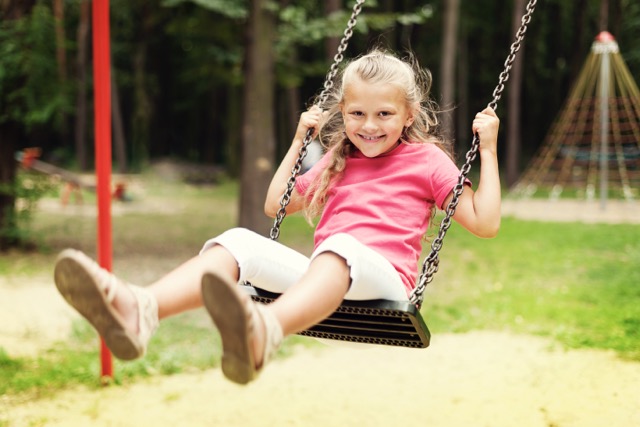
Transitions Made Easy for Children
Transitioning from one activity to another can be challenging for children, often leading to tantrums and meltdowns. As parents and caregivers, it’s important to understand how to support children through these transitions and help them develop coping strategies. In this article, we will explore expert strategies for assisting kids with transitions, as well as the role of professionals in addressing these challenges. Understanding Transitions Transitions are the changes that occur when children move from one activity or environment to another. These can include simple transitions like going from the park

Key Strategies and Activities for Developing Body Awareness in Children
Body awareness is pivotal in a child’s development, influencing their physical coordination and spatial orientation. Understanding body awareness and its underlying mechanism, proprioception is essential for parents and caregivers to support their children’s growth. Understanding Body Awareness and Proprioception Body awareness refers to knowing where our body parts are without looking. Proprioception, the sensory information from muscles, joints, and tendons, feeds into this awareness, helping us navigate our environment and perform tasks efficiently. Issues with proprioception can manifest as clumsiness, difficulty in movement coordination, and challenges in navigating spaces. Identifying

Cultivating Fine Motor Skills Through Reading
One way to unlock the potential of fine motor skills is through book reading. The intricate dance of fingers and pages is more than just reading; it’s a developmental journey enhancing a child’s fine motor skills. 1. The Essence of Fine Motor Skills in Reading Fine motor skills are pivotal in grasping and turning the pages of a book. These skills involve the precise movements of hands and wrists, which are essential for holding a book and navigating through its pages. This interaction is not just about reading; it’s about
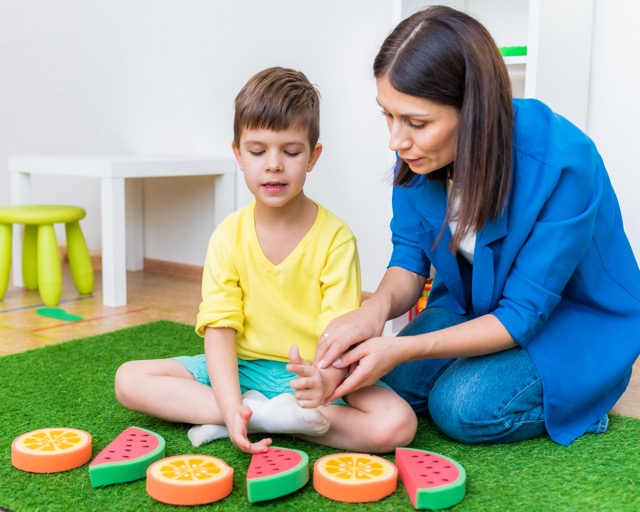
Expert Strategies for Child Development Through Occupational Therapy
The Role of Occupational Therapy in Child Development At Red Door Pediatric Therapy, located in Beulah, Minot, Grand Forks, Bismarck and Fargo, North Dakota, we understand the importance of mastering daily activities, or “occupations,” in a child’s development. Occupational therapy is pivotal in this process by focusing on essential skills like bathing, dressing, eating, and sleeping. Assessing Developmental Milestones Concerns about a child’s developmental progress are common among parents. To address these worries: Holistic Assessment and Personalized Care Our trained professionals, including occupational therapists, take a comprehensive approach: Collaborating with

Guiding Your Child in Dressing Independently
Dressing warmly becomes crucial for children as the chilly air settles in North Dakota. At Red Door Pediatric Therapy, we recognize the importance of helping children develop the skills to dress themselves. This journey of independence is a significant aspect of their growth and development. Parents often wonder at what age their children should start dressing themselves. The process, from ages one to six, is gradual and requires patience and guidance. Early Development: Ages One to Two In their first year, children show interest in dressing by pulling off socks

The Therapeutic Magic of Snowman Building for Children: Insights from Therapists
Winter brings a whimsical invitation to engage in outdoor activities, and one age-old tradition stands out among the snow-covered landscapes: building a snowman. Beyond being a fun pastime, the act of creating a snowman offers a multitude of therapeutic benefits for school-aged children. Occupational therapists, physical therapists, and speech therapists recognize the profound advantages embedded within this seemingly simple activity.

Biking: A Pathway to Child Development
Springtime in North Dakota presents a perfect backdrop for a cherished childhood activity: biking. At Red Door Pediatric Therapy, we recognize the myriad benefits biking offers to children’s development. From Minot to Grand Forks, and Bismarck to Beulah and beyond to Fargo, families are discovering how this simple activity is not just about recreation, but a comprehensive developmental tool. 1. Biking: A Catalyst for Family Bonding and Social Development Biking stands out as an engaging activity that unites families. It encourages children to interact and keep up with their peers,
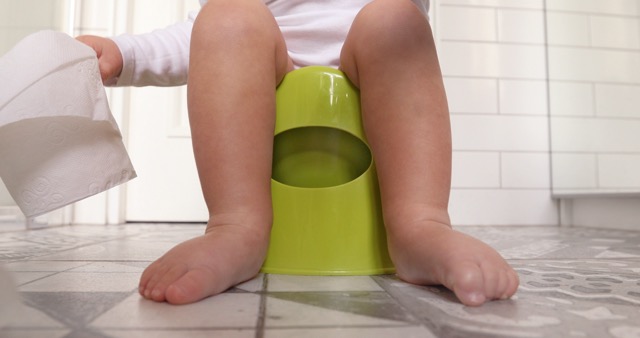
Understanding Pelvic Floor Dysfunction and Incontinence in Children
Pelvic floor dysfunction and incontinence in children are sensitive issues that can significantly impact a child’s life. Understanding these conditions and knowing how to address them effectively is important. Defining Pelvic Floor Dysfunction and Incontinence Common Issues and Symptoms Children with pelvic floor dysfunction may experience: The Role of Professionals in Managing These Conditions Trained professionals, such as occupational and physical therapists, are essential in addressing these issues. At Red Door, with locations in Beulah, Minot, Grand Forks, Bismarck and Fargo, North Dakota, we specialize in evaluating and treating pediatric
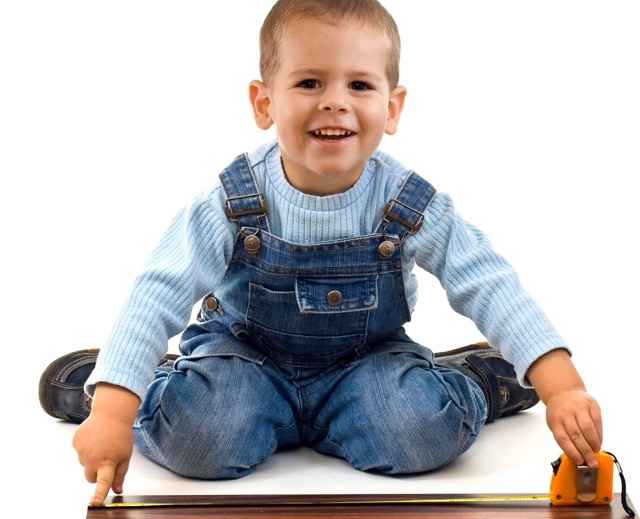
W Sitting and the Importance of Posture
“W sitting” is a term you might not be familiar with, but it’s important to consider in your child’s development. It refers to a sitting posture where children sit on the floor with their legs forming a ‘W’ shape. At Red Door Pediatric Therapy, we emphasize the need to understand and correct this posture to ensure children’s healthy physical and sensory development. Why Do Children Adopt W Sitting? Children naturally find W sitting comfortable, especially during play, as it provides stability without engaging core muscles. However, if prolonged, this posture

The Therapeutic Magic of Snowman Building for Children: Insights from Therapists
Winter brings a whimsical invitation to engage in outdoor activities, and one age-old tradition stands out among the snow-covered landscapes: building a snowman. Beyond being a fun pastime, the act of creating a snowman offers a multitude of therapeutic benefits for school-aged children. Occupational therapists, physical therapists, and speech therapists recognize the profound advantages embedded within this seemingly simple activity.
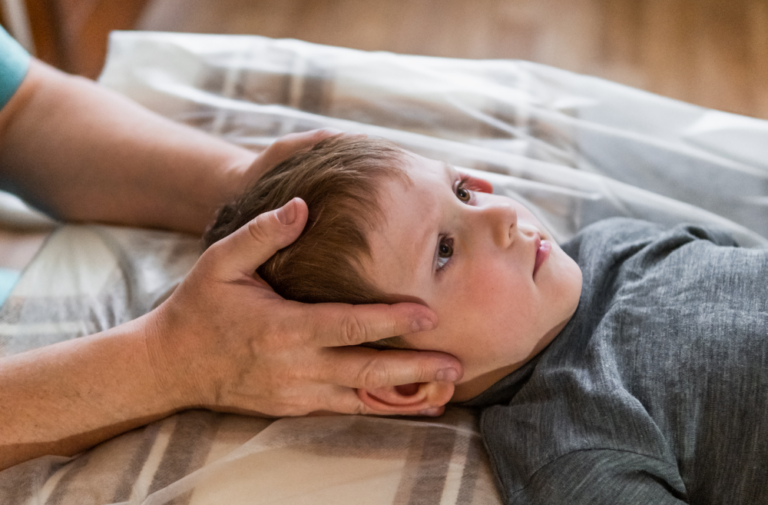
Exploring Craniosacral Therapy in Pediatric Physical Therapy: Benefits and Integration
As parents, we are always on the lookout for effective therapies that can support our children’s health and well-being. One emerging practice in the field of pediatric physical therapy is craniosacral therapy (CST). In this article, we will delve into what craniosacral therapy entails and how physical therapists are incorporating it into treatment sessions for children. We will also explore potential benefits over time that CST can offer to your child’s overall development.
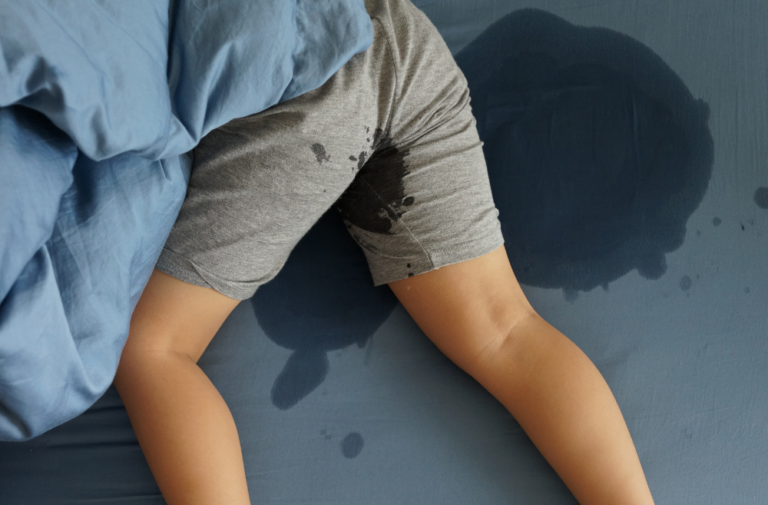
Understanding Bedwetting in Children
Bedwetting, medically known as nocturnal enuresis, is a common issue that many children experience during their early years. As a parent, it’s natural to wonder when bedwetting typically stops and whether your child may have an underlying issue related to incontinence.

Support for New Moms Navigating Infant Feeding Challenges
Parenthood brings joy and challenges. One of the primary concerns often revolves around infant feeding – a process that can be both rewarding and overwhelming. At Red Door Pediatric Therapy, we understand the intricacies of infant feeding and are dedicated to supporting mothers through this crucial phase. Identifying Feeding Difficulties in Infants It’s important to recognize signs that may indicate feeding difficulties in your baby. These include making clicking sounds during feeding, choking, having unusually long or sleepy feeds, and experiencing poor sleep. Such symptoms can be distressing for both
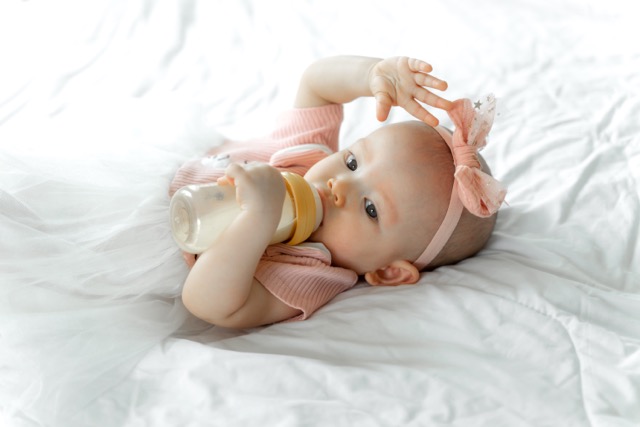
Expert Strategies for Infant Feeding
Feeding a newborn is often perceived as a natural process, but many parents face challenges that can be overwhelming. Issues like difficulty latching, keeping the baby aroused enough for feeding, and concerns about adequate nutrition are common in the first critical weeks after birth. The Role of Healthcare Professionals Trained professionals, such as pediatricians and lactation consultants, are often the first points of contact for feeding difficulties. They provide strategies like trying different feeding positions or altering bottle and nipple types. When these initial steps are insufficient, it’s time for

Understanding and Helping Picky Eaters
Picky eating in children is a common challenge that impacts family meals and nutritional balance. This post delves into the reasons behind picky eating and offers strategies for making meal times more harmonious and nutritious. What Causes Picky Eating? Picky eating often stems from: When Does Picky Eating Become a Concern? While some pickiness is normal, it’s concerning when it disrupts family meals or regular eating routines. The Role of Professionals in Addressing Picky Eating Occupational and speech therapists play a crucial role in managing picky eating. At Red Door,

Navigating Breastfeeding Challenges
Breastfeeding is a journey unique to each mother and child, often marked by challenges. While it’s natural, it’s not always straightforward or easy. Understanding these complexities is crucial for new mothers who may face unexpected difficulties to make this journey smoother for you and your baby. The Reality of Breastfeeding Challenges Breastfeeding may seem like it should come naturally, but it’s common for mothers and babies to face hurdles. Some babies struggle with latching, while others cough or choke during feeding. These issues can lead to inadequate weight gain and
Mealtime: Establishing Routines
By: Geena Schmidt, OTR/L, Mary Dahly, OTR/L & Lindsay Jolley, COTA The mealtime routine is important for families in order to encourage healthy habits, communication, and to deepen family connections. Children especially benefit from mealtime because of the abundant opportunities to learn life long skills. Some of these lifelong skills include: meal preparation, responsibilities, manners, establishing healthy routines, and relating to other people. Here are some ways to involve your child in mealtime routines! Involve your child Have “Taco Tuesday” at home, or let your child pick 1-2 meals they

A Comprehensive Guide to Understanding Sensory Processing in Children
Sensory processing is a crucial aspect of a child’s development that affects their functional, behavioral, emotional, and social development. It involves how children understand and interpret the information they receive from their environment through their senses. This information includes what they see, smell, taste, touch, and hear, as well as the sensations within their own bodies, such as their movement and feelings. Sensory processing can vary greatly from one child to another, and some children may struggle with processing sensory information effectively. In this comprehensive guide, we will explore the
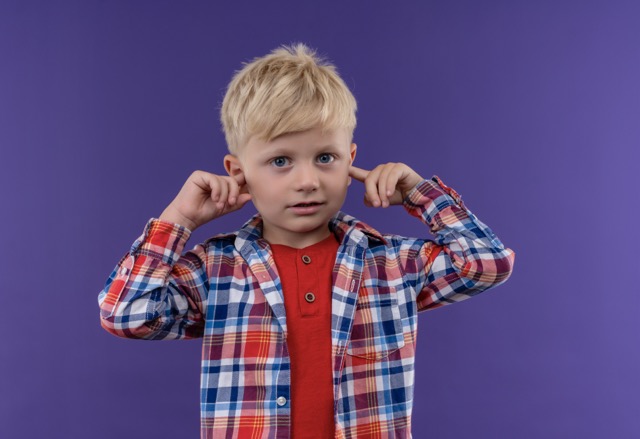
Sensory Integration Challenges in Children: Insights and Strategies
Sensory integration is a critical aspect of a child’s development, encompassing how they process and respond to sensory input from their environment. It’s a foundational element that affects everything from daily activities to social interactions. Identifying Sensory Regulation Difficulties Children with sensory regulation challenges might experience: Understanding Hypersensitivity Some children exhibit heightened sensitivity to sensory inputs, leading to: Sensory Seeking Behaviors On the opposite spectrum are children who are sensory seekers, who: Our Approach at Red Door At Red Door Pediatric Therapy, with locations in Beulah, Minot, Bismarck, and Grand

Therapeutic Listening for Attention and Sensory Processing
Parents and caregivers often seek effective ways to support their children’s attention and sensory processing abilities. At Red Door Pediatric Therapy, with locations in Beulah, Minot, Grand Forks, Bismarck and Fargo, North Dakota, we offer the Therapeutic Listening program, a unique and innovative approach that combines the science of sound with therapeutic expertise. What is Therapeutic Listening? Therapeutic Listening is a sound-based intervention that utilizes electronically altered music. The key components of this program include: Benefits for Attention and Sensory Processing Therapeutic Listening is particularly beneficial for children who experience
Haircuts: Why they are tough for kids with sensory processing difficulties
By: Brianna Mittelsteadt, OTR/L Many people find going to the salon or barber shop a treat; scalp massages, a fresh new look, lovely smelling shampoo, maybe even a sucker when you are done. There are many individuals who have the opposite experience: children and individuals with sensory processing difficulties. Let’s quick talk about what sensory processing difficulties mean. Sensory processing refers to how the nervous system receives sensory information and processes or interprets it through the brain. When an individual has sensory processing difficulties, this information does not get organized

Support for New Moms Navigating Infant Feeding Challenges
Parenthood brings joy and challenges. One of the primary concerns often revolves around infant feeding – a process that can be both rewarding and overwhelming. At Red Door Pediatric Therapy, we understand the intricacies of infant feeding and are dedicated to supporting mothers through this crucial phase. Identifying Feeding Difficulties in Infants It’s important to recognize signs that may indicate feeding difficulties in your baby. These include making clicking sounds during feeding, choking, having unusually long or sleepy feeds, and experiencing poor sleep. Such symptoms can be distressing for both

Teaching Your Toddler to Follow Directions
Teaching toddlers to follow directions is a subtle art. At Red Door Pediatric Therapy, we recognize this as a fundamental skill, vital for a child’s cognitive and social development. Learning to follow directions is a journey that begins almost as soon as a child can interact with the world around them. 1. The Early Stages: Infancy and Direction The foundation of following directions is laid during infancy. Simple actions like waving ‘bye-bye’ or playing ‘peekaboo’ are early forms of direction-following that emerge around six to nine months. These interactions are

The Red Door Approach to Pediatric Therapy
At Red Door Pediatric Therapy, we understand that every child is unique and may require different strategies and interventions. Our approach is centered around providing personalized care and support to help children reach their full potential. Here’s a closer look at how we approach various aspects of pediatric therapy: Child Development Milestones Understanding and monitoring child development milestones is crucial for identifying potential delays or concerns. If you suspect your child may have difficulty reaching certain milestones, our team of experts can provide a comprehensive evaluation. By assessing your child’s

Transitions Made Easy for Children
Transitioning from one activity to another can be challenging for children, often leading to tantrums and meltdowns. As parents and caregivers, it’s important to understand how to support children through these transitions and help them develop coping strategies. In this article, we will explore expert strategies for assisting kids with transitions, as well as the role of professionals in addressing these challenges. Understanding Transitions Transitions are the changes that occur when children move from one activity or environment to another. These can include simple transitions like going from the park

Your Journey Begins at Red Door Pediatric Therapy
A Warm Welcome to Red Door At Red Door Pediatric Therapy, founded by dedicated professionals in North Dakota, we understand that beginning therapy services for your child can be a journey filled with questions and decisions. Our team, spread across Beulah, Minot, Grand Forks and Bismarck and Fargo, is committed to making this process as smooth and reassuring as possible. Starting with a Free Screening Our journey with every family begins with a free, no-strings-attached screening. This initial step serves several crucial purposes: The Path to In-Depth Evaluation Following the

Perinatal Occupational Therapy: A Guide for Parents
Perinatal occupational therapy addresses the mental well-being of parents during the period from conception to a year after birth. This is a time of significant changes and challenges, both physically and emotionally, for mothers and fathers. It is essential to recognize and address the mental health needs of parents during this critical period. In this article, we will explore the role of occupational therapists in supporting perinatal occupational health and the services offered at Red Door Pediatric Therapy. The Role of Occupational Therapists in Perinatal Mental Health Occupational therapists, like

